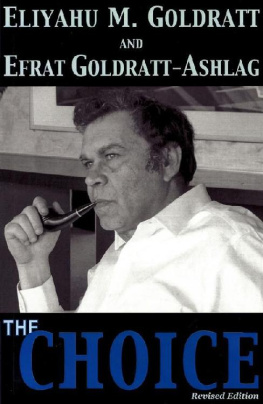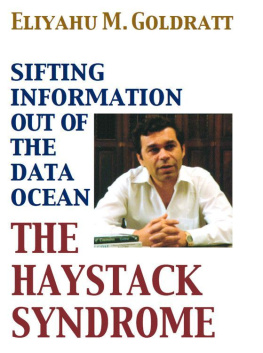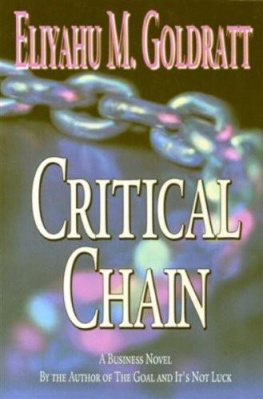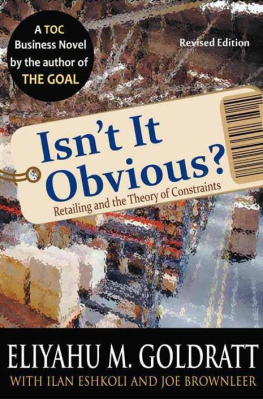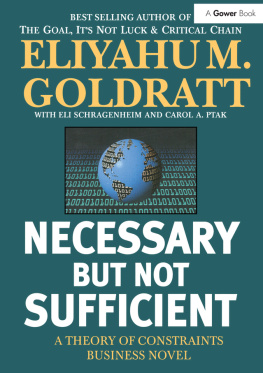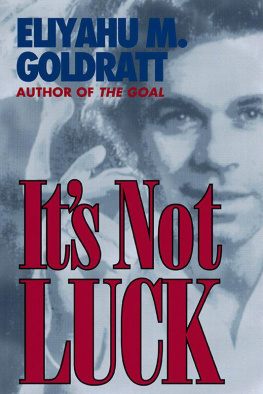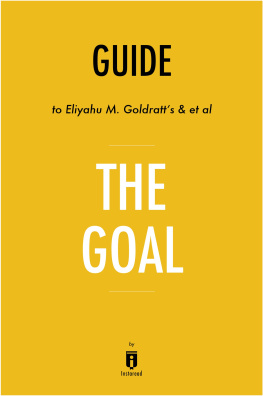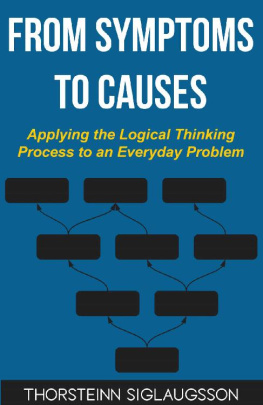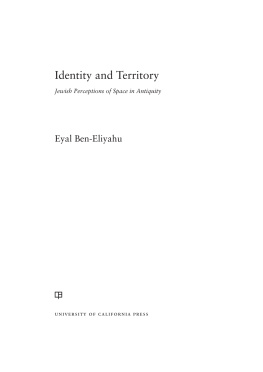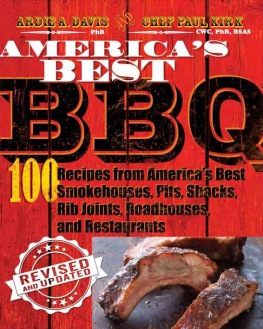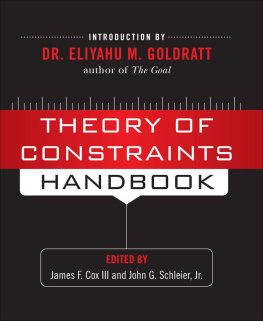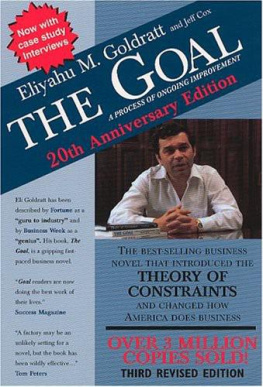Additional copies may be obtained from your local bookstore or the publisher:
The North River Press
Publishing Corporation
P.O. Box 567
Great Barrington, MA 01230
(800) 486.2665 or (413) 528.0034
www.northriverpress.com
ISBN: 978-0-88427-251-9
Copyright 2008 Eliyahu M. Goldratt
Revised Edition Copyright 2010 Eliyahu M. Goldratt
All rights reserved. Except in the case of a review which may contain brief passages, no part of this book may be reproduced in any form or by any electronic or mechanical means, including information storage and retrieval systems, without permission in writing from the publisher.
Printed in the United States of America
Contents
Foreword
Eli Goldratt is probably best known by his millions of readers as a business guru. Those who know him a little better may think of him as a scientist and an educator, and to some he is a genius, a classification he vehemently denies. To me he is all that and, of course, much more. I have been Eli's publisher, editor and friend for over twenty-five years.
Early on I was aware that Eli is actually on a quest to demonstrate that the approach and methods of the hard sciences can and should be applied to the social sciences. He initially targeted management science, claiming that since in that branch of the social sciences results are measurable, people find it harder to dispute the superiority of using the hard science techniques. It was fascinating to see how gradually the business world accepted Eli's work in spite of the fact that so much of it is a drastic departure from tradition. His Theory of Constraints (TOC) is now taught at almost every business school and MBA program and has been used by thousands of companies and government agencies worldwide. TOC has been successfully applied in almost every area of human endeavor, from industry to health care to education.
Unlike his readers, I have had the opportunity to see Eli in action. Together we struggled in an industrythe publishing industrythat views itself as so unique that its self-imposed limitations are almost written in stone. As of this writing we have published nine books togetherbooks that have been translated into twenty-seven languages and have sold many millions of copies. We have had tremendous success, outselling many bestsellers by far and keeping an undiminished market for our books. Eli's first book, The Goal, sells as many copies per year now as it did twenty years ago. Taking into account the millions of used copies available, this is a remarkable feat. Of course we made mistakes along the way, but each mistake led to new thought, new approaches, new ways, which in turn led to more success.
What I realized through that struggle is that Eli has developed much more than he was writing about. I became convinced that he developed a pragmatic life philosophy that guides not just his writing but also all his conduct. It's no wonder that I started to press him to share, in writing, his unique approach. For years, actually decades, he declined, claiming that he was not yet ready. At last I prevailed. This book is the result. I hope you enjoy and benefit from it as much as I do.
Laurence Gadd
The North River Press
Prologue
At first, all my father asked me for was to use my name. He said he was writing a new book and he would like to write it as a dialogue between him and me. This would have been my father's tenth book, and I appreciate his attempts to continuously try new styles of writing. Reluctantly I gave my permission. Then he came back with another request. He said he would like to hear my reactions to his ideas so that the book will sound more authentic. That would require my time, and time is a scarce resource nowadays as I am juggling work and taking care of my two young boys, so I inquired into the content. Based on the past I expected to hear about another Theory of Constraints business book. But here came the surprise. Yes, the book would contain a few business chapters, but Father explained that it was mainly about how to live a full life. He knew exactly which button to push. I am highly interested in that subject, both for my own life and for the people I consult. Knowing how original his thinking is, I was curious to hear what he had to say.
That was the beginning of the most fascinating intellectual journey I have ever taken. For months we would meet and debate, often for hours at a time. Father would explain the messages he wanted to convey, and I would offer my thoughts. A new perspective of thinking was opened to me, an approach to view reality and make decisions that is valid not only for business, but first of all for living the kind of life I want to live. Father's intent to construct the book as a series of dialogues turned into reality.
The pace of the discussions was rather fast. Father raised point after point, all of which I wished I could take the time to digest. Not before long I started to feel overwhelmed. I began to have a growing feeling that I was missing important things. I also became curious to see if I could actually do what he suggested. I wanted to experiment writing these logical maps he was talking about. I asked for his help in constructing a logical map of each of the chapters that described our interaction. In order to verify that I was not lost, the maps were written to reflect his main message in each chapter. I also started taking notes to see whether the maps made sense to me and to articulate where I stood. The logical maps and my notes are now included at the end of this book.
Efrat Goldratt-Ashlag
C HAPTER 1: What Choice Do We Have?
My name is Efrat. I'm accustomed to reading my father's writing out loud to him. He claims that my comments, and more so my body language, help him to spot when his arguments are unclear.
Once I asked him, "Why me?"
"Because, unlike so many other people, you don't fool yourself that you know everything about organizations, let alone about human behavior."
I like his answer. I worked hard to get a PhD in organizational psychology. I invested many years to learn how much we don't know. No wonder the title of this report, which I am about to read aloud to him, is of particular interest to me. It's called "Freedom of Choice."
"Father, what is the choice you made that impacted your life the most?" I ask.
Decisively he answers, "I wanted to live a full life. The most important decision that led directly to it was my decision to constantly devote time to understanding, really understanding, each one of my areas of interest: family, friends and work."
Knowing that when Father says "really understand," he means spending endless hours in the attempt to decipher the causalities that govern a situation, I sigh, "That's not easy."
"Who is talking about easy? Do you want an easy life?" he asks.
Being the daughter of my father I have heard this question more than once. "I know, I know. If you want an easy life just grab a hammer, a big one, and hit yourself on the head, hard. You'll have a very easy life. They'll even bring the food to your bed."
I definitely want to live a meaningful lifea full lifeand so does everyone I know.
I'm also aware that even though people want to live a full life, most people don't achieve it.
"Why is it so difficult for people to admit that they don't want an easy life?" he asks.
"Because they do want an easier life, and living a meaningful life is so difficult to reach."

